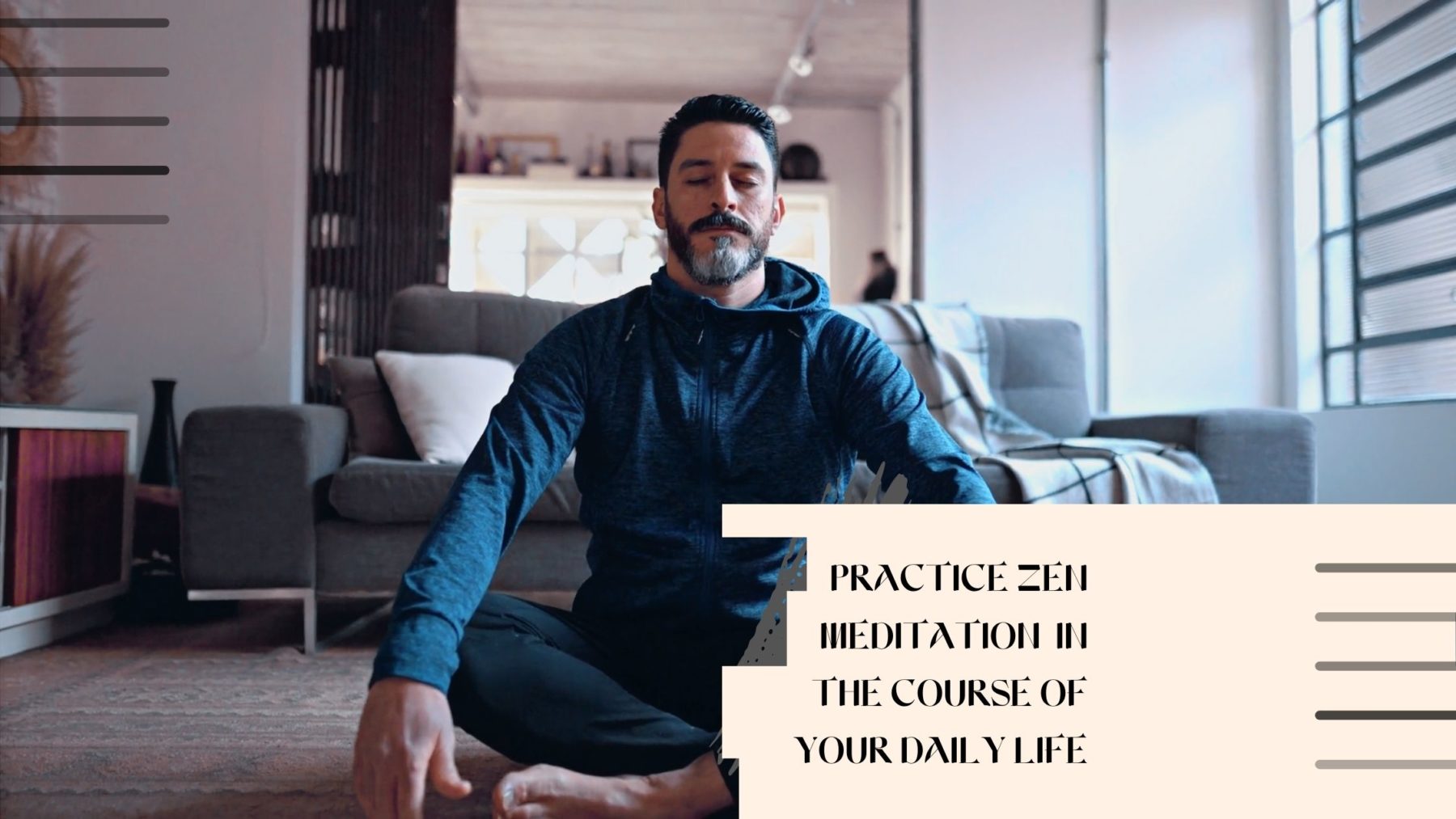When the mind of a person who deals with anxiety goes to the future, it runs into anticipating danger and catastrophe. The anticipation triggers anxiety. When the mind of a person who deals with depression goes to the past, it meets rumination about past failures. Arises guilt, and regret. The present here and now offers a refuge from these uncomfortable places. So we work at developing the capacity to train the mind to come back and stay, in the present. In this post, I will share with you a few techniques that you can practice in your daily life. Practices that increase your ability to live in the present. We begin with Zen meditation – Zazen.
There are 4 ways to practice Zen meditation. The Buddha called them “the 4 nobilities of man”. The 4 nobilities of man are: Standing, Walking, Sitting, and Lying down. Of these four ways to meditate, sitting meditation, or Zazen is the main one. I’ll start with Zazen, and share more about the others in other posts.
Zazen’s power is in its simplicity. Many people complicate it. Many books on Zen, and Zazen, in particular, presents it in the light of how they are practiced formally. Described in the way that it’s practiced in a monastery. They make a lot of emphasis on the way to sit, which is hard for the average person. In the tradition of psychology that I come from we practice meditation. We meditate for its proven psychological, and spiritual effects and benefits. We don’t emphasize the exact posture of sitting as essential to getting those benefits.
When practicing zazen, sitting with your legs crossed is the most efficient way for many reasons. But you can sit in any way that you find comfortable. Find a good cushion, higher than the floor, and something soft where your feet and legs can rest: a carpet, or a yoga mat for example. Cross your legs. Put your left palm on top of your right palm, and put both hands about 2 inches below your belly button. Straighten your back as much as you can. Let your gaze roll down your nose. Wherever it lands, keep looking at that spot. Now breath. Pay attention to your breath. And count. One breath in and out is 1, then 2, etc. until you get to 10. When you get to 10 return back to 1 and start again.
While you are breathing let yourself think about whatever comes to your mind. Feel whatever feeling or sensation comes up. Watch them, let them come, let them go, breath, count. So here is what’s going to happen: you will notice that your mind drifted. You lost count. Either you are not counting, or you are now counting 15, or 20, or whatever. Now, this is very important. Simply take the next breath. Count 1 again, and start a new count. No matter how many times this happens, just come back to 1, and start counting again. This is very important.
Pay attention to your reaction to losing count. Pay attention to thoughts like “I’m a failure”, “I can’t even count right”, “I don’t know how to meditate”, etc. Understand that this is normal, it’s actually supposed to happen in the beginning. Just come back to 1, breathe, and count again. Do this for the time that you have set for yourself. And that’s it.
Why practice this? Zazen meditation will increase and strengthen, a part of your mind that is capable of watching your thoughts, your feelings, and your situations, without becoming overwhelmed by them. There is a famous metaphor of how this happens. A Zen master explained it this way: your true mind is like the sky. Your thoughts, sensations, feelings, and emotions are clouds. If you are grounded on your sky, it will be clear to you that your thoughts, emotions, and sensations come and go. Sometimes slowly, sometimes faster, but they always pass.
From your center, your sky, you see and feel how your thoughts, sensations, and feelings, come, and go. By returning your attention back, to where you are, to the present moment, you can feel the difference between what is real, and what you imagine. Using your breath and your counting, as an achor, you can stay in the now longer. You get to feel, and strengthen, the part of your mind that is your sky. And, you become better equipped to be able to handle depression, anxiety, and cravings. You will be able to manage all the painful and disturbing emotions in your life. You will see them as what they really are: clouds that will pass.
